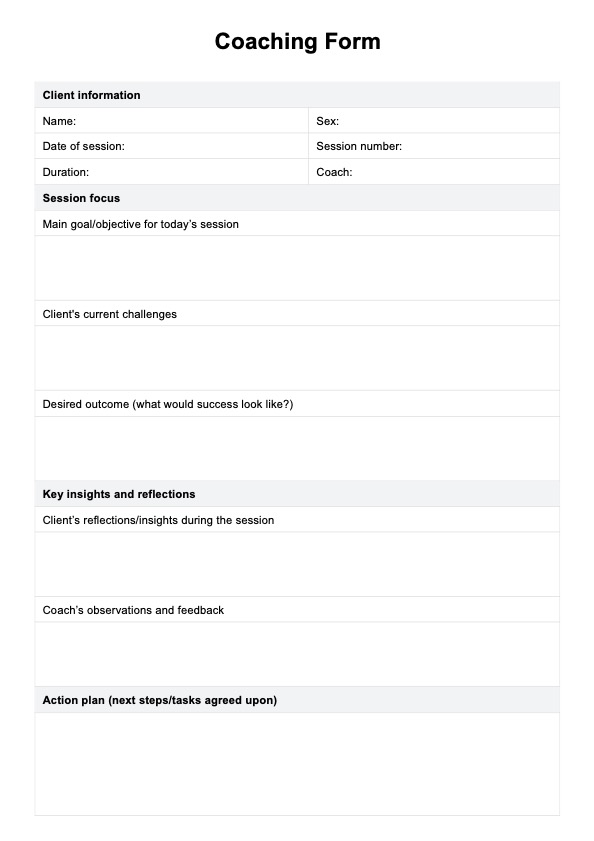When would you use Coaching Forms?
Coaching Forms offer practical benefits in various coaching scenarios for practitioners and clients alike. The following are instances where Coaching Forms play a crucial role:
Initial consultation and onboarding
These forms streamline the intake process during the early stages of a coaching relationship. Coaches can gather essential client information, including personal details, background, and coaching objectives. Understanding client needs from the outset enables coaches to effectively tailor their approach and build rapport.
Goal setting and planning
Coaching Forms are instrumental in facilitating the goal-setting process. They enable coaches and clients to collaborate in defining clear, measurable, and attainable goals. By documenting these goals, coaching Forms set the way for the coaching journey, ensuring focus and progress.
Progress tracking and accountability
They are used throughout the coaching engagement to monitor progress and track achievements. Coaches can use the documented information to assess the effectiveness of their strategies and adjust them accordingly.
Identification of challenges and areas of growth
Coaching Forms allow clients to articulate their challenges, concerns, and areas of improvement. This information provides coaches with useful insights. By focusing on the identified growth areas, clients can experience tangible and meaningful development.
Evaluation and feedback
As the coaching relationship nears its conclusion, Coaching Forms become vital for evaluation and feedback. Both coaches and clients can reflect on the progress made, lessons learned, and the overall impact of the coaching process. Input gathered through Coaching Forms facilitates continuous improvement for coaches and ensures client satisfaction.












